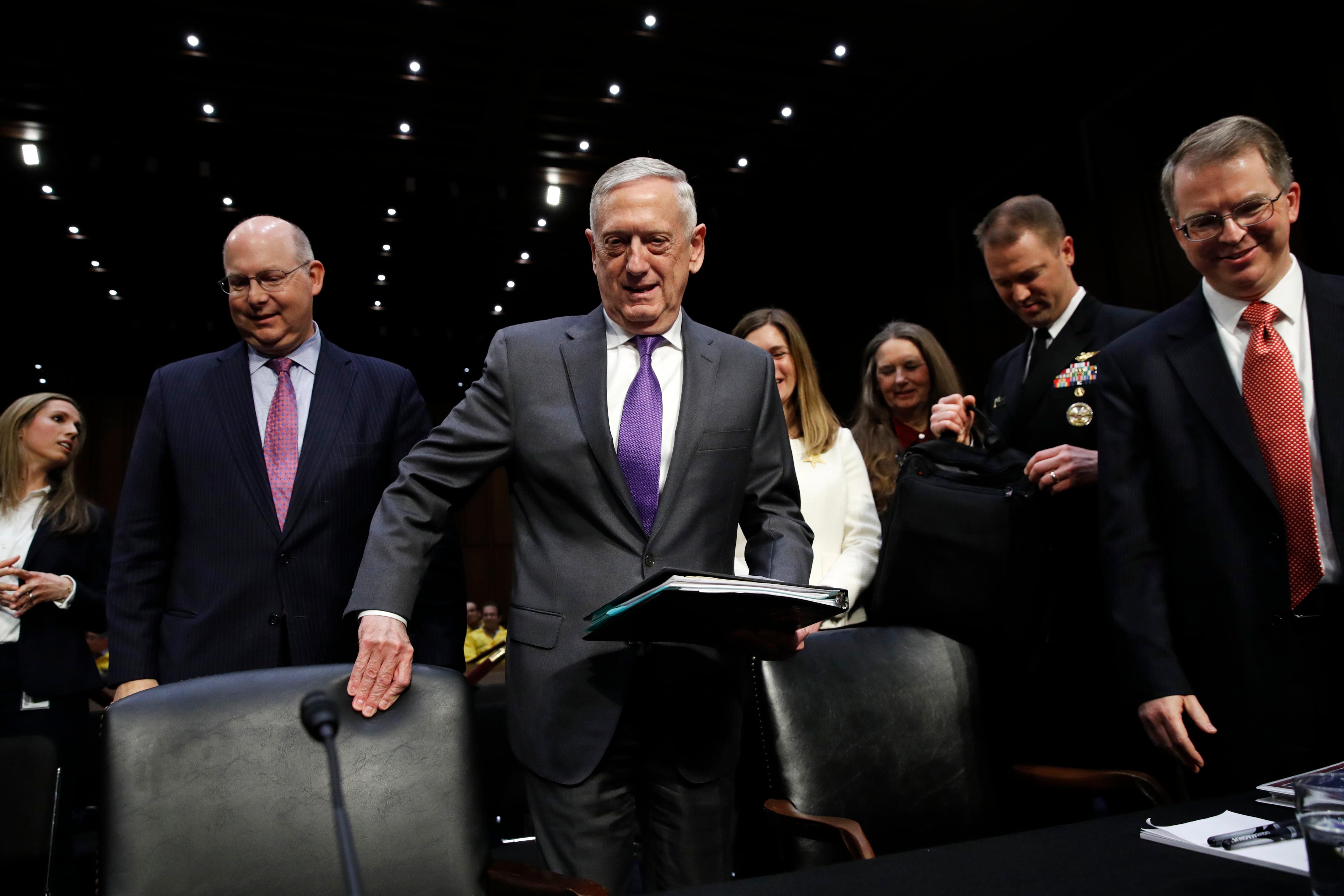WASHINGTON — New year, new dysfunction.
The divided U.S. Congress started its new session gridlocked over a partial government shutdown, foreshadowing a year of inactivity and partisan confrontations with the president.
With President Donald Trump insisting Congress fund his a border wall on national security grounds, defense watchers worry the dynamic could ensnare defense spending and other Pentagon priorities in 2019. Plus, a Senate vote last month to buck Trump’s support for the Saudi war in Yemen could signal a more confrontational approach by Congress to Trump’s foreign policies.
The House, led by Democratic House Speaker Nancy Pelosi, closed out its first day of the 116th Congress by passing six spending bills to reopen most of the federal agencies that have been closed since the partial shutdown began Dec. 22.
But because the package did not contain the border wall funding Trump sought, he threatened to veto it. In turn, Senate Majority Leader Mitch McConnell vowed not to let the Senate vote on any package Trump won’t sign.
Who will blink?
Trump was unable to win border wall funding when the GOP controlled both chambers and the White House for two years, so it’s unclear why he thinks he can convince House Democrats, who feel they were elected just weeks ago to oppose him on immigration and other partisan issues.
If Democrats want to reach beyond their base, they may have to find common ground with Trump. As one defense lobbyist put it: “It really feels like the wheels are starting to come off, and Democrats need to be careful because they need to show they can govern.”
On the House Armed Services Committee, the new chairman, Rep. Adam Smith, D-Wash., is poised to challenge the administration. He said Jan. 6 that he wants to call hearings on the Trump administration’s dispatch of 5,600 troops to the border.
Smith also questioned Trump’s pronouncement the U.S. should cut its military losses and withdraw from Syria — which Trump reversed after a GOP backlash and Defense Secretary Jim Mattis resigned in protest.
After White House national security adviser John Bolton said Jan. 6 the U.S. is not going to withdraw its troops until Turkish President Recep Tayyip Erdogan promises to protect the Kurds and the Islamic State group is defeated, Smith ripped Trump for insulting America’s valuable allies and sewing confusion.
RELATED

“I don’t think anybody knows what the policy is right now,” Smith said. “In Syria, the two points that John Bolton made are obvious. We don’t want ISIS to rise again and be a transnational terrorist threat, and we don't want our allies, the Kurds, to be slaughtered by Erdogan in Turkey. I mean, that was obvious how many ever weeks ago it was when President Trump, apparently on a whim, tweeted out we’re getting out of Syria.”
The Trump administration was not getting much cover from House Armed Services Committee ranking member Rep. Mac Thornberry, R-Texas, who said of Trump’s initial announcement: “I think it was a mistake. I think it worried our allies, it encouraged our enemies, and I think the administration is trying to backtrack from a blanket withdrawal.”
“Ambassador Bolton has walked back some of that concern, but there’s still a lot of worry that if you let up the pressure on terrorists groups — whether they are in Syria, Afghanistan or Yemen — they can spring back to life very quickly and threaten us here at home,” Thornberry said Jan. 6 on Fox News.
Some Democrats, including Sen. Elizabeth Warren, D-Mass., have agreed with Trump in substance, but McConnell fast-tracked GOP Sen. Marco Rubio’s “Strengthening America’s Security in the Middle East Act,” signaling displeasure with the president’s Syria withdrawal pronouncement.
It remains to be seen who Trump will choose to replace Mattis on a permanent basis, if anyone. As of Jan. 4, it looked like he would not ask the Senate to confirm a new defense secretary; an administration official told reporters that day that acting Defense Secretary Patrick Shanahan — a career Boeing executive with 18 months of government experience — can serve in that role indefinitely.
Sen. James Inhofe, R-Okla., and Thornberry appear to have prevailed with Trump to boost the Pentagon’s nascent fiscal 2020 budget request from $700 billion, which would have been a $17 billion cut from FY19, to $750 billion.
Inhofe has launched a series of Senate floor speeches to argue for increased defense spending, to counter pressure from Democrats and to support the strengthening of a “neglected” nuclear triad to stay competitive.
“While we have been neglecting it, the other side has been paying attention to their capabilities,” Inhofe said of the nuclear arsenal in a Dec. 20 speech.
Joe Gould was the senior Pentagon reporter for Defense News, covering the intersection of national security policy, politics and the defense industry. He had previously served as Congress reporter.







